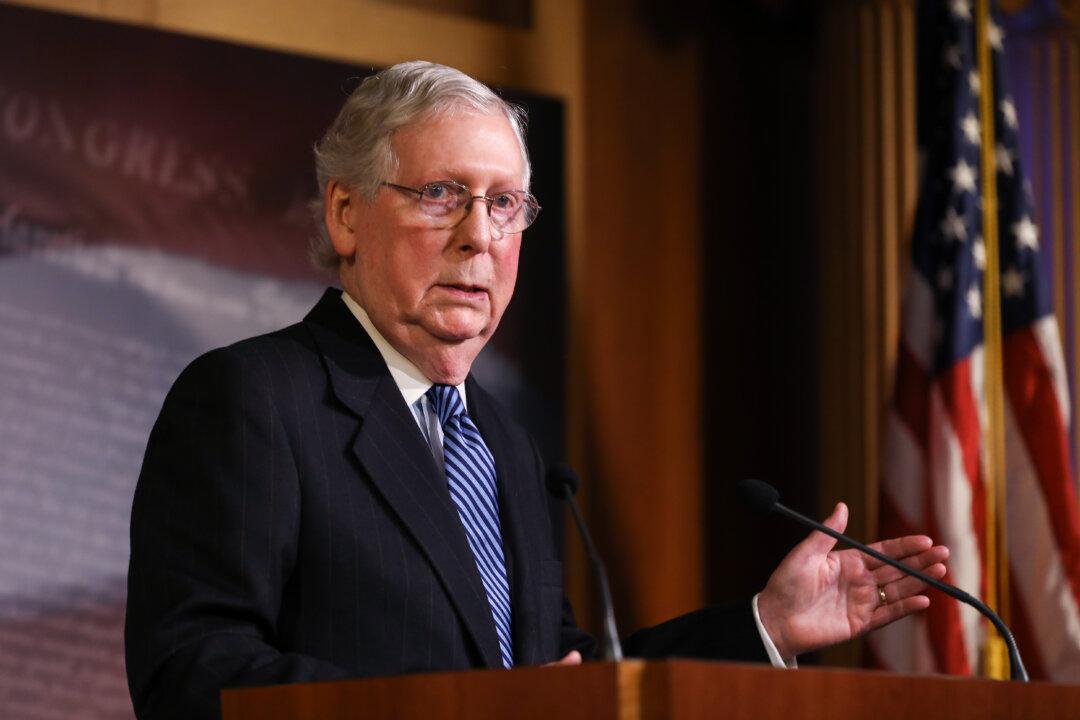Senate Majority Leader Mitch McConnell (R-Ky.) introduced on Thursday the text of the Republicans’ proposal for the third part of the sweeping COVID-19 response plan, with formal negotiations with the Democrats now able to begin.
The massive new legislative package is to combat the effects of the outbreak of the CCP virus. The Epoch Times refers to the novel coronavirus, which causes the disease COVID-19, as the CCP virus because the Chinese Communist Party’s coverup and mismanagement allowed the virus to spread throughout China and create a global pandemic.





